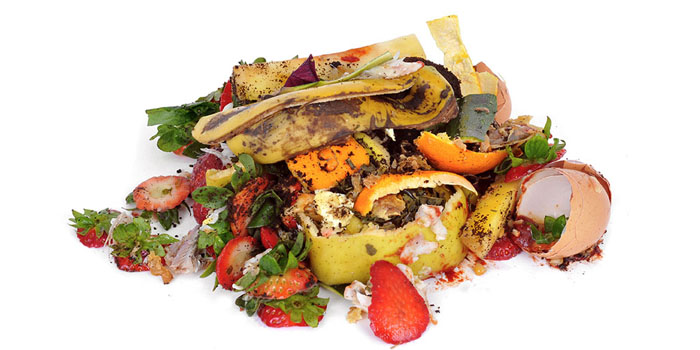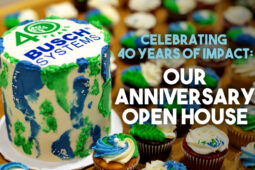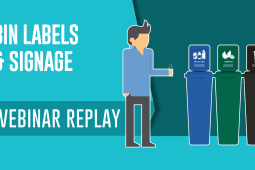When it comes to sustainable practices, composting is a trend that is here to stay. Home composting is by no means a modern-day creation with the first instance being traced back to a farmer and scientist named Marcus Cato who lived in Rome over 2000 years ago.
Composting in public places like school cafeterias, restaurants, and residential buildings is becoming a more common practice as certain states and municipalities are encouraging (or requiring) businesses and residents to separate organic waste from their trash.

San Francisco, Seattle and Portland were the first three cities to pass laws that made compositing mandatory for businesses in the United States.
Portland is one city that definitely isn’t messing around with their recycling and composting laws: Businesses that aren’t in compliance with legislation are subject to a $200 fine for the first infraction, increasing $200 for every month the issue isn’t resolved. Restaurants in Portland are also required to use compostable takeaway containers.
More cities and states are starting to jump on the composting heap. Former New York Mayor Michael Bloomberg proposed a voluntary composting program in 2013 that could potentially become mandatory over the next few years. Currently, there are nearly 70 food scrap drop-off sites located all throughout New York’s five boroughs
In 2011, Connecticut became the first state to mandating food scraps generated by large-scale generators be recycled while Vermont has banned the disposal of yard debris by July 1, 2016 and food scraps by July 1, 2020
Massachusetts businesses and institutions that throw out more than a ton or more food waste per week were no longer allowed to do so effective October 1st, 2014. Composting and various other options including the reduction of food waste and donating leftovers have been encouraged by Recycling Works Massachusetts.
Minneapolis, Minnesota marked their first day of organic recycling collection on August 10, 2015 for business owners and residents in selected neighbourhoods. The program will expand to more residential and business areas next year.
By 2016, all restaurants over 5,000 square feet in Austin, Texas are expected to compost with smaller restaurants following suit in 2017.

So why is it that so many cities and states want to divert organic waste from landfills? Let’s look at some hard facts:
- Organic waste (yard trimmings, paper, food scraps) makes up 60% of material that goes into our landfills
- The average household in the United States generates 650 lbs of compostable material annually
- Single family households in Toronto discard about 606 lbs of food waste per year
- As much as 30% (worth approximately $48 billion) of food is thrown away each year
- Biodegradable waste can be used as a resource for heat, electricity and fuel by means of Anaerobic Digestion
In Canada, it’s estimated that 17 million people have access to curbside organic yard waste collection and about 40% of these municipalities collect kitchen waste. Nova Scotia started the trend of organic waste collection by completely banning biodegradable waste from going to landfills in the 1990s.
There are currently 350 composting facilities across Canada and with the most populated province, Ontario, setting a 60% diversion goal the industry is set to grow larger.

Do you currently reside in a city or municipality that has organic waste collection on the horizon? Feeling a little apprehensive about the adjustment to separating your food scraps from the rest of your waste?
Fear not!
Local governments always provide their residents with information and resources to make the transition into a competent composter a cinch.
Composting is a waste stream that is here to stay and a sector of the recycling industry to keep an eye on. With more cities, towns and states/provinces expanding their recycling programs to include food and yard scraps, don’t forget to factor in the useful applications for biodegradable waste, the future of compost and energy is definitely a green one.
Sources
http://aaronallen.com/blog/restaurant-trend-composting-not-only-cool-legally-required
http://www.davidsuzuki.org/what-you-can-do/food-and-our-planet/help-end-food-waste/
http://extension.psu.edu/plants/gardening/news/2013/some-composting-facts
https://waste-management-world.com/a/composting-in-canada
http://www.mass.gov/eea/agencies/massdep/recycle/reduce/composting-and-organics.html
http://www.ci.minneapolis.mn.us/solid-waste/
http://www.howtocompost.org/info/info_composting.asp
http://www.anr.state.vt.us/dec/wastediv/compost/main2.htm
http://ilsr.org/rule/food-scrap-ban/connecticut-organics-recovery/





